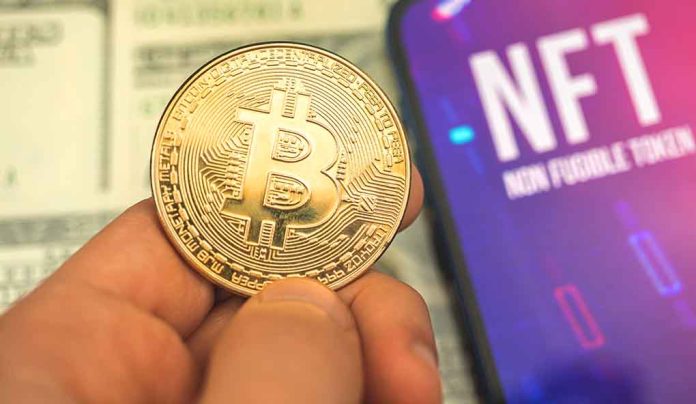
Alabama officials strike back against predatory “pig butchering” scammers, recovering $125,000 in stolen cryptocurrency from romance scam victims who lost nearly $580,000 to online imposters posing as love interests.
Key Takeaways
- The Alabama Securities Commission (ASC) recovered over $125,000 for two victims who lost a combined $580,000 in “pig butchering” cryptocurrency scams.
- Victims were targeted through dating apps like Bumble and messaging platforms like WhatsApp, where scammers built fake romantic relationships before convincing victims to invest in fraudulent cryptocurrency platforms.
- One victim lost $395,000 after being tricked into investing in a fake platform falsely associated with Charles Schwab, while another lost $185,000 to someone posing as a cryptocurrency expert.
- Cryptocurrency fraud is surging nationwide, with pig butchering scams accounting for 33.2% of all crypto scam revenue in 2024, showing a 40% growth with a 210% increase in victim deposits.
Alabama Authorities Recover Portion of Massive Cryptocurrency Theft
The Alabama Securities Commission has successfully recovered more than $125,000 in cryptocurrency assets stolen from two state residents who fell victim to sophisticated online romance scams. These financial predators used relationship-building tactics to manipulate victims into transferring substantial amounts of digital currency into fraudulent investment platforms. The recovered funds represent only a fraction of the nearly $580,000 that was stolen from the Alabama victims, highlighting the devastating financial impact these schemes can have on unsuspecting individuals. The recovery marks a rare victory in the challenging landscape of cryptocurrency fraud, where transactions are typically irreversible and difficult to trace.
“The ASC continues to see an increase in cryptocurrency fraud, including ‘pig butchering.’ The ASC’s ultimate goal in cyber and crypto crimes is to capture the fraudster and recover funds. Most cyber crimes, however, originate overseas, and the transactions are instant, making it nearly impossible to apprehend the criminals or recover funds. Crypto assets are particularly challenging to recover as most often the cryptocurrency is either immediately transferred to numerous different wallet addresses, ‘swapped’ for different cryptocurrencies, and redistributed to different blockchains, and/or ultimately transferred to an overseas exchange and converted to fiat currency. In crypto frauds, our special agents devote long hours to an extremely tedious tracing process (in contrast to traditional financial analyses), but often aren’t able to recover funds. It’s extremely gratifying when we can pursue seizures on behalf of investors,” – ASC Director Amanda Senn.
How “Pig Butchering” Scams Operate
These elaborate fraud schemes, known as “pig butchering,” involve criminals methodically “fattening up” their victims before “slaughtering” them financially. The name reflects the predatory nature of these operations, where scammers invest weeks or months building trust and emotional connections with their targets before executing their financial attack. The criminals typically initiate contact through dating apps like Bumble or social media platforms, engaging victims in seemingly innocent conversations that gradually shift toward investment opportunities. Once trust is established, victims are persuaded to invest in fraudulent cryptocurrency platforms that appear legitimate but are entirely controlled by the scammers.
The Baldwin County victim lost approximately $185,000 after being manipulated by someone posing as a cryptocurrency expert. The scammer established a relationship with the victim through online messaging before convincing them to transfer funds to a fraudulent investment platform. Similarly, the Etowah County victim was deceived into believing they were investing through a legitimate platform falsely associated with Charles Schwab, ultimately losing about $395,000. The ASC managed to recover $53,227.81 for the Baldwin County victim and $73,927.68 for the Etowah County victim, providing some financial relief despite the substantial losses.
Growing Threat of Cryptocurrency Fraud
Cryptocurrency scams have exploded globally, with at least $9.9 billion stolen through various schemes in 2024 alone. Pig butchering scams have become particularly profitable for criminals, accounting for over one-third of all cryptocurrency scam revenue this year. These operations have evolved to target more victims with smaller average deposits, demonstrating a tactical shift toward volume rather than focusing solely on high-value targets. The anonymous nature of cryptocurrency transactions makes these crimes especially attractive to international criminal networks, which can operate with relative impunity from overseas locations.
“ASC Director Amanda Senn noted that crypto-related fraud is on the rise and that many of these scams originate overseas.” – ASC Director Amanda Senn.
Federal authorities have increased enforcement actions against the infrastructure enabling these scams. In March, the U.S. Treasury Department took the significant step of sanctioning a Philippine-based company and its Chinese administrator for facilitating pig butchering operations. Despite these efforts, the scams continue to proliferate, with pig butchering revenue growing nearly 40% in 2024 and the number of deposits increasing by 210% year-over-year, according to recent data. This explosive growth demonstrates how criminals are adapting their tactics to evade detection while maximizing profits.
Protecting Yourself from Cryptocurrency Scams
The ASC strongly urges victims to report cryptocurrency scams immediately to increase the chances of recovering stolen funds. Time is critical in these cases, as the longer a victim waits to report the crime, the more opportunity criminals have to move, swap, or cash out the stolen assets. The commission provides various resources for investor education and fraud prevention, emphasizing the importance of thorough research before investing in any cryptocurrency opportunity. Legitimate investment platforms have verifiable histories, proper licensing, and transparent operations that can be independently confirmed.
Citizens should be particularly wary of investment advice from recent online acquaintances, especially those who refuse video calls or in-person meetings. Pressure to move conversations to encrypted messaging apps like WhatsApp is another red flag, as these platforms make it difficult for authorities to trace communications. Requests to send cryptocurrency to unfamiliar platforms or wallets should always trigger suspicion, regardless of how convincing or emotionally invested the relationship may seem. The best protection against these scams remains vigilance, skepticism toward unsolicited investment opportunities, and verification of all investment platforms through official regulatory channels.



